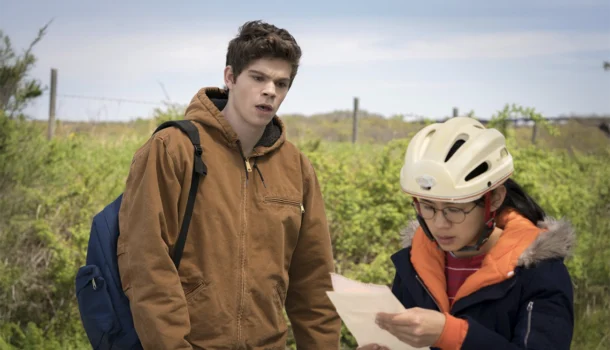Alice Wu’s absence from the spotlight for over a decade appears, at first glance, to be an intriguing mystery, but in truth, it stands as a testament to the complexity of personal paths that do not yield to the industry’s immediatist expectations. Born in 1970 in vibrant San Jose, Wu bears the intellectual rigor of an engineer educated at Stanford, while her sensitive and critical gaze on the Asian-American experience has granted her a unique voice in cinema. Contrary to what might be expected from a filmmaker who debuted to acclaim in 2004, her withdrawal was not a sign of surrender, but a forced pause, lived with the same intensity that would later mark her triumphant return.
Her debut with “Saving Face” was not a fortuitous act, but a natural outgrowth of her engagement with writing, nurtured during screenwriting classes at the University of Washington. However, her promising career was abruptly interrupted when her mother fell ill, demanding a level of care from her that the film world, with its pressures and urgencies, did not allow her to reconcile. Thus, Wu turned to technology as her main occupation during this interval, building a respectable career as a software engineer. Yet this hiatus was more than mere absence: it became a period of incubation, silent but deeply formative experiences that solidified her vision of identity and belonging.
Wu’s resilience, however, was not exhausted in her parallel professional life. Driven by a creative unrest that defied time, she would return to the screen with “The Half of It,” a film that, although framed as a teen romantic comedy, disarms any expectation of superficiality. Here, the focus shifts from mere romantic narrative to a refined study of desire, sexual fluidity, and the invisible barriers imposed by culture. The protagonist, Ellie Chu, is more than an academically gifted teenager: she embodies the tensions between tradition and modernity, between filial duty and the longing for authenticity, all within a context of social invisibility, shaped by her Asian background in small-town America.
The plot, loosely inspired by “Cyrano de Bergerac,” gains particular depth by exploring writing as both revelation and disguise. As Ellie pens letters on Paul’s behalf, she not only articulates someone else’s feelings but also discovers, through her dialogue with Aster, a chance to recognize herself. The symmetry of tastes, intellectual affinities, and shared restlessness between Ellie and Aster do not merely serve a romantic mishap but highlight that communication is, at times, the only possible refuge for forbidden affections. Meanwhile, Paul, initially a figure of near-caricatured simplicity, gains complexity as he realizes that his quest for love paradoxically leads him to admire the one guiding him.
This affective triangulation reveals, then, the ambiguities of desire and identity, articulated without moral binaries. Wu, aware of the genre’s traps, weaves into the film a layer of reflection that transcends the immediate. It is not about claiming a space of representation, but about questioning the very contours of that space, challenging the boundaries between authenticity and imposture. Thus, “The Half of It” becomes an exercise in deconstruction, where love is not a reward, but a process, and sexuality is not a label, but a field of continuous discovery.
Wu’s hallmark lies, therefore, in the subtlety with which she investigates the conflicts residing in the interstices of human experience. Her refusal to conform to linear narratives, her choice of displaced protagonists, and her resistance to simplification result in an aesthetic that privileges the unfinished, the uncertain, the potential. In times that crave swift answers, Alice Wu offers the value of doubt, of waiting, of listening — crafting cinema that does not succumb to the obvious, but invites introspection. It is in this space of unrest that the true power of her art resides.
Film: The Half of It
Director: Alice Wu
Year: 2020
Genres: Comedy/Drama/Romance
Rating: 9/10

